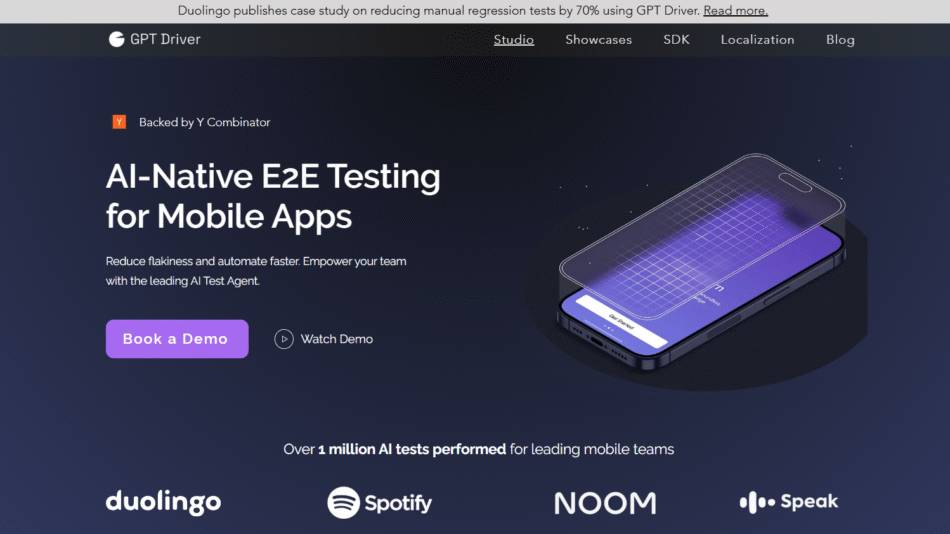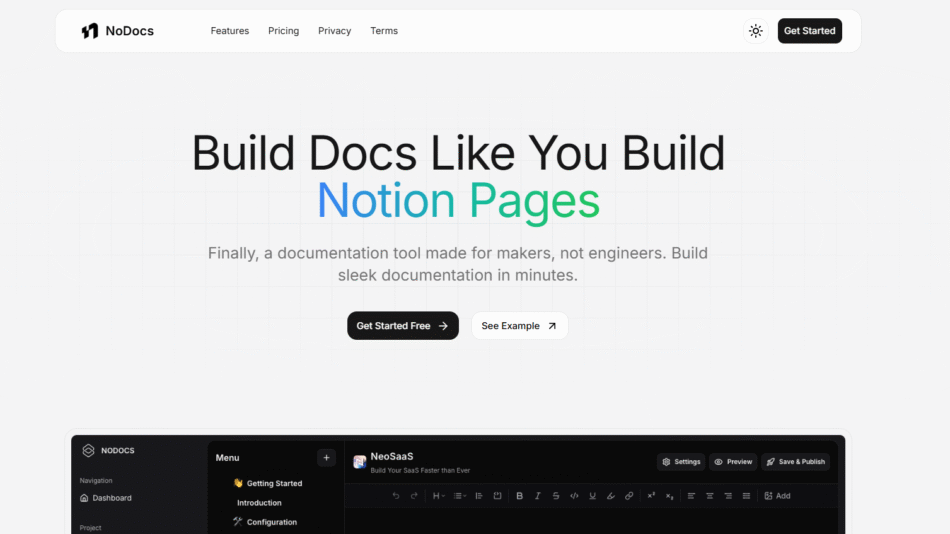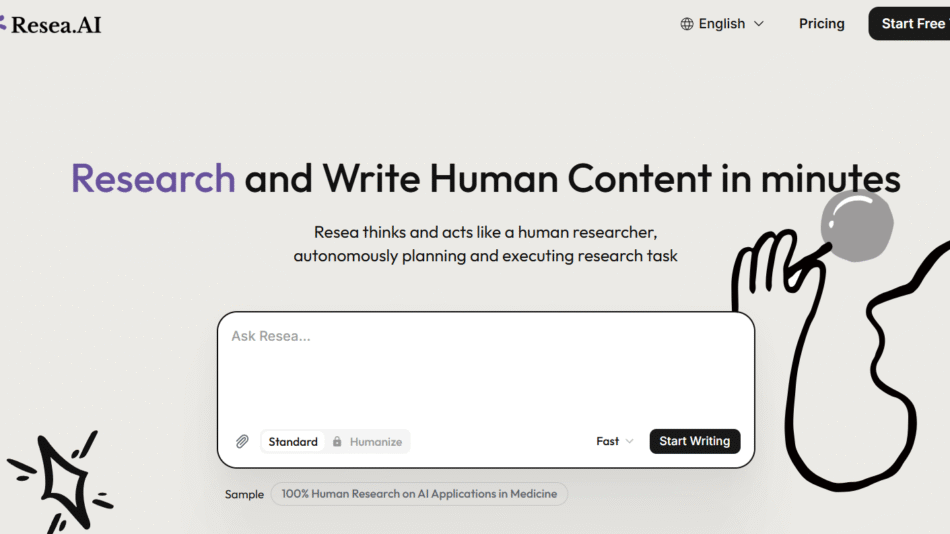AgentVerse is a collaborative AI platform designed for building, deploying, and testing multi-agent systems in a controlled sandbox environment. It enables developers, researchers, and engineers to simulate how autonomous AI agents interact, cooperate, and achieve complex tasks—making it a valuable tool for experimenting with decentralized AI workflows and emergent behavior.
With support for different agent architectures and Large Language Models (LLMs), AgentVerse allows users to prototype, debug, and fine-tune agent behavior in isolated virtual environments, without the need to set up complex backend infrastructure. Whether you’re testing one agent or coordinating many, AgentVerse provides the tools to streamline multi-agent development from start to simulation.
Features
AgentVerse offers a suite of capabilities that empower users to rapidly build and test intelligent agents in a simulated space:
Multi-Agent Architecture Support
Design and test systems where multiple AI agents interact to complete coordinated or competitive tasks.Built-in Agent Templates
Access ready-to-use agent roles and behaviors to speed up prototyping.LLM Integration
Connect agents to powerful language models like GPT-4, Claude, or others for natural language reasoning and planning.Custom Agent Design
Configure your own agents with custom logic, goals, communication styles, and reasoning strategies.Simulation Environment
Run real-time simulations to observe how agents make decisions, communicate, and respond to dynamic scenarios.Debugging and Logging Tools
View agent interactions, logs, and message histories for in-depth troubleshooting and refinement.Collaborative Workspace
Invite team members to co-build, comment on, or run simulations in shared projects.Agent Communication Protocols
Test how agents talk to one another via predefined channels, prompts, or APIs.Scenario and Task Configuration
Create and manage custom environments where agents operate based on rules or goals.
How It Works
AgentVerse is designed to make building intelligent multi-agent systems more accessible and scalable:
Set Up a New Simulation
Choose from predefined templates or start from scratch. Define the agents, their roles, and the environment.Configure Agents
Assign goals, behaviors, and model backends (such as GPT-4 or Claude). Each agent can have its own reasoning logic.Define Scenarios
Establish rules, tasks, or objectives for the agents to complete—such as solving puzzles, retrieving information, or managing resources.Run Simulation
Launch the test and watch how agents act, communicate, and learn from each other in real time.Analyze Results
Use logs, reports, and conversation history to refine logic or optimize strategies.Collaborate and Iterate
Share the simulation with teammates, make adjustments, and rerun tests to continuously improve agent performance.
This structured sandbox approach helps researchers and developers quickly iterate without overhead, focusing on logic and coordination rather than infrastructure.
Use Cases
AgentVerse is ideal for a wide range of users exploring complex AI behaviors:
Research in Multi-Agent Systems
Simulate emergent behavior, collaboration, or competition among agents in academic or commercial experiments.AI Agent Development
Prototype and test task-specific AI agents (e.g., researcher bots, planning assistants, trading agents).Coordination and Planning
Model distributed AI workflows for logistics, operations, or autonomous planning systems.Security and Adversarial Testing
Simulate red-team/blue-team scenarios where agents act as attackers and defenders.AI Education and Training
Help students or teams understand agent-based systems through hands-on, no-setup simulations.Game AI Prototyping
Design and refine intelligent NPC behaviors or dialogue systems using collaborative agents.
Pricing
As of June 2025, AgentVerse is currently in an open beta and free to use for individual users and teams who sign up via the platform.
According to the official website, premium plans are expected to roll out soon and may include:
Increased simulation run time
Private workspaces and agent data storage
API access for external system integration
Enterprise support and SLAs
Advanced logging and visualization features
For updates on pricing and access, users can sign up or join the waitlist at https://agentverse.ai.
Strengths
AgentVerse delivers several key advantages for users building intelligent agent systems:
No Infrastructure Required
Build and test agents in a browser—no setup, servers, or dependencies.Rapid Prototyping
Accelerates iteration cycles for LLM-powered agent logic and behavior testing.Flexible Agent Configuration
Customize agents’ reasoning, models, communication styles, and workflows.Educational and Research-Friendly
Ideal for learning environments and experimental applications in AI labs.Support for Popular LLMs
Easily integrate models like GPT-4 to test realistic conversational and decision-making behavior.Open Collaboration
Built-in team features help developers and researchers work together on complex agent systems.
Drawbacks
While AgentVerse is powerful, there are a few limitations to consider:
Still in Beta
Some features may be unstable or incomplete; performance under scale is still being tested.Limited Long-Term Storage
Without paid plans, long-term storage of simulations or agent configurations may be restricted.No Native API Access Yet
As of now, users cannot deploy agents outside the sandbox or connect them to real-world tools.Model Dependency
Relies on external LLMs, which may introduce latency or cost concerns in future production use cases.Not Built for Production Deployments
Ideal for prototyping, research, and simulation—not yet suitable for mission-critical applications.
Comparison with Other Tools
AgentVerse vs. Auto-GPT
Auto-GPT allows users to create autonomous agents using code. AgentVerse provides a no-code, collaborative environment with a sandboxed interface.
AgentVerse vs. LangChain
LangChain focuses on building apps with LLMs via code. AgentVerse focuses on testing agent behavior in simulation, not production app development.
AgentVerse vs. CrewAI
CrewAI supports multi-agent task execution via structured APIs. AgentVerse is more simulation-first, with a strong emphasis on experimentation and education.
AgentVerse vs. ChatGPT Team Workspaces
While ChatGPT enables multi-user chats, AgentVerse is built specifically for multi-agent coordination, not just team discussion.
Customer Reviews and Testimonials
As AgentVerse is in beta, user reviews are primarily shared through developer communities and early user feedback channels:
“AgentVerse made it easy to test how agents would coordinate without writing infrastructure code.”
“We simulated a multi-agent research team and found unexpected coordination failures—which helped us improve our agent logic.”
“A great tool for exploring decentralized reasoning with LLMs. The sandbox model is perfect for academic projects.”
Early adopters appreciate AgentVerse for its speed, simplicity, and collaborative features, especially in research and prototyping contexts.
Conclusion
AgentVerse offers a novel solution for anyone working with multi-agent AI systems. With its sandboxed, browser-based environment, customizable agent architecture, and seamless LLM integration, it makes building and testing autonomous agents more accessible, interactive, and collaborative.
For AI researchers, developers, and educators looking to explore the future of agent-based intelligence—AgentVerse is a powerful platform for rapid experimentation and learning.















